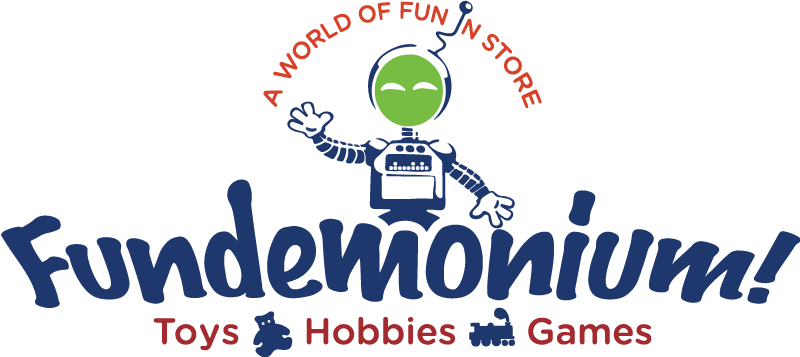Local family entertainment businesses seek equitable treatment under the Blueprint for a Safer Economy restrictions.
Now that the Stay at Home order has been lifted, and we look ahead to the day when we enter the Red Tier of reopening, local family entertainment businesses ask for the help of the public in requesting a review of the businesses and activities allowed to open in each tier. These decisions are supposed to be based on data and science yet we will see that they are currently driven by false assumptions and prejudice against family entertainment.
At present we are in the Purple tier. That means Indoor shopping, indoor personal services, indoor day care, and indoor kids camps can all operate at reduced capacity while following safety protocols.
Indoor worship services just opened at 25% capacity because the Supreme Court of the United States recognized that churches were arbitrarily discriminated against compared to other similar functions.
Schools will soon open following safety protocols.
Obviously, many social and business functions are reopening while deploying specific safety protocols such as reduced occupancy, masking, and sanitizing. Why are other business functions being held down even if they are as safe or safer than opened businesses and can demonstrate the adoption of required safety protocols?
Applying Safe Standards Equitably in the Red Tier
In the “Red” tier of California’s reopening plan, shopping malls, retail stores, hair salons, nail salons, tattoo parlors, piercing studios, museums, gyms, movies, hotels, worship services and schools are allowed to operate indoors. However, family entertainment centers, bowling facilities, skating rinks, trampoline parks, and other family-oriented businesses will not be allowed to reopen at all until the Orange or Yellow tier.
What we are suffering under is a Distinction Without a Difference, which is defined as, “an artificially created distinction where no real difference exists.”
Why are these businesses closed?
Family entertainment centers, bowling facilities, skating rinks, game play, arcades, and other similar businesses have been open and operating safely outside of California with no evidence of heightened Covid-19 transmission risk as compared to businesses that are already open in California.
Nearly all states currently allow family entertainment businesses to operate under capacity and safety protocol requirements.
Indeed, what is the difference between the permitted activities versus the closed activities below:
- Swinging a kettle bell in a small gym (permitted) versus swinging a bowling ball in a large alley (closed)
- Running on a treadmill in a small fitness studio (permitted) versus skating in a large rink (closed)
- Performing calisthenics in a studio (permitted) versus jumping on a trampoline in a large indoor center (closed)
- Gathering to watch a movie (permitted) versus gathering to play a board game (closed)
- Gathering to worship (permitted) versus gathering for a club meeting (closed)
All of the closed activities listed above have similar (or lower) levels of physical exertion and occur in larger and better ventilated spaces than the permitted activities. Again, this is a case of an artificially created distinction where no real difference exists.
“We are the experts of our businesses and our industry, and we know that our businesses can be operated in a way that allows families to come and have a great time while also being very, very safe,” said Jeannie Saya, owner of Cal Skate in Rohnert Park. “We’ve developed the best safety protocols from both our industry best practices and government guidance.”
Science and Data Matter
There is no science that supports the state decisions about which businesses are in which tiers in the state’s plan. It’s largely political, and local family entertainment businesses have the least political clout.
Science and data show that generic activity focus has no bearing on safety. Only specific health procedures such as masking, spacing, sanitizing, and airflow matter; these are the standards that should be dialed up or down between tiers.
False assumptions about how family entertainment businesses operate and prejudice against their business type have led to blanket industry closures regardless of how well the business can implement safety standards.
Each of the participating businesses has completed a full safety plan for their facilities that includes strict mask compliance, capacity limitations, social distancing requirements, enhanced ventilation protocols, and disinfecting processes. Despite their commitment to running their businesses by these extremely safe standards, neither County nor State officials will tour their facilities or consider their proposals.
Take Action
The undersigned businesses and local citizens urge you to take action by calling, writing, and emailing all involved government representatives to demand equitable treatment of all businesses.
Signed:
Steven Elliott, Owner – Fundemonium
Jim Decker, Owner – Double Decker Lanes
Jeannie Saya, Owner – Cal Skate
Jenny Ogston, General Manager – Epicenter
Laura Chase, Owner – Reed Between the Lines
Maggie Alexandridis, Owner – Rebounderz
Taylor Greene, General Manager – Reading Cinemas
Jaime Pattison, Owner – Windsor Bowl
Ron Schisler, Owner, Doghouse Billiards
Download a PDF of this article.
Representatives to contact to show your support:
Press Democrat Letters to the Editor, letters@pressdemocrat.com
Bill Dodd, State Senator, https://sd03.senate.ca.gov/contact, 707-576-2093
David Rabbitt, County Supervisor, David.Rabbitt@sonoma-county.org, 707-565-2241
Shirlee Zane, County Supervisor, Shirlee.Zane@sonoma-county.org, 707-565-2241
Mike McGuire, State Senator, senator.mcguire@senate.ca.gov, 707-576-2771
Cecilia Aguiar-Curry, State Assembly, https://a04.asmdc.org/, 707-224-0440
Governor Newsom, Governor of CA, https://www.gov.ca.gov/

